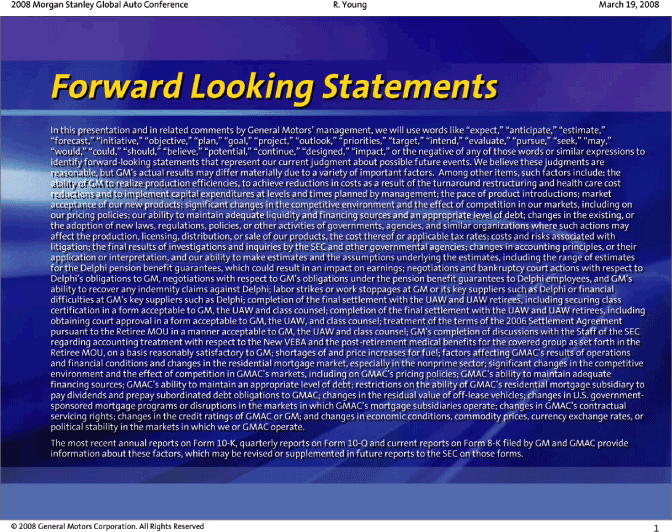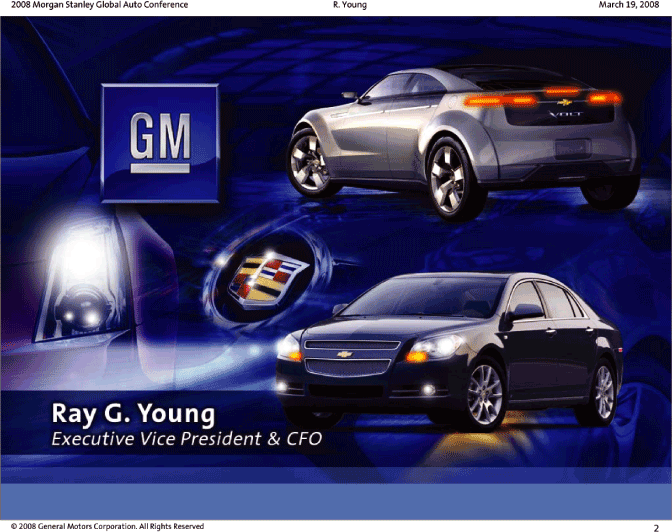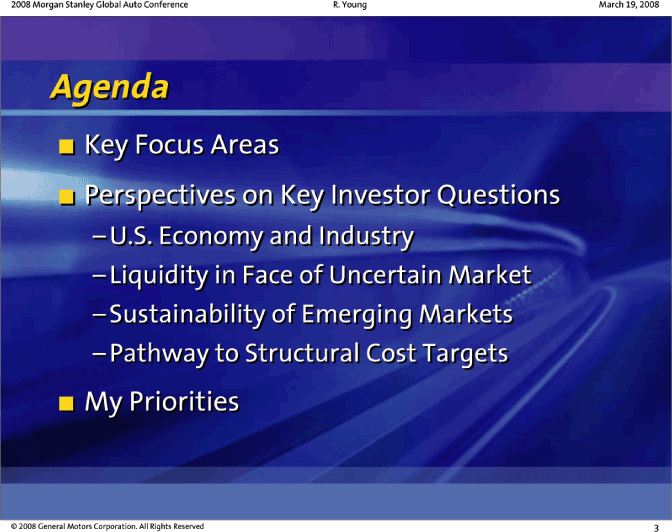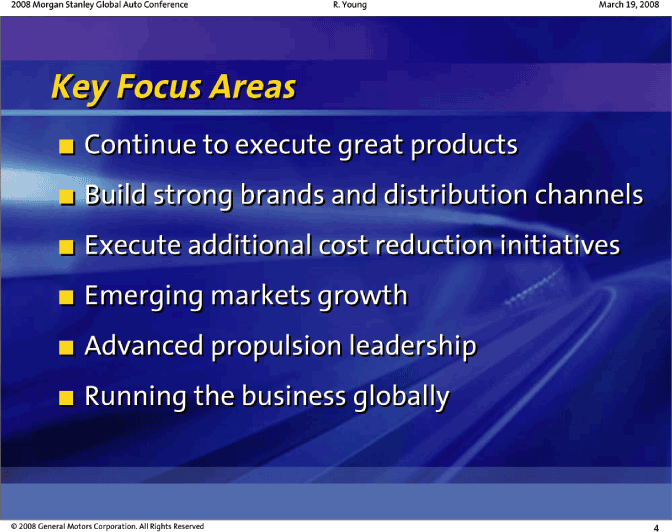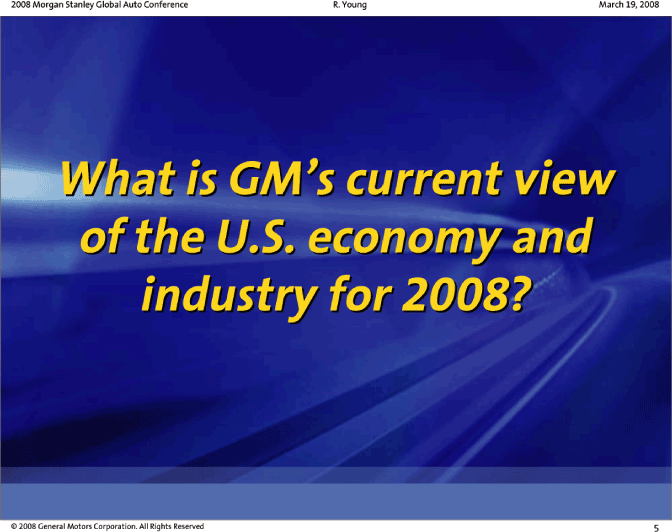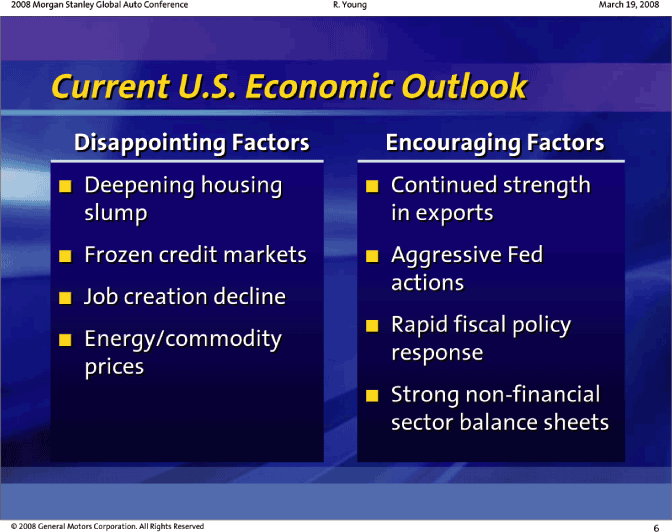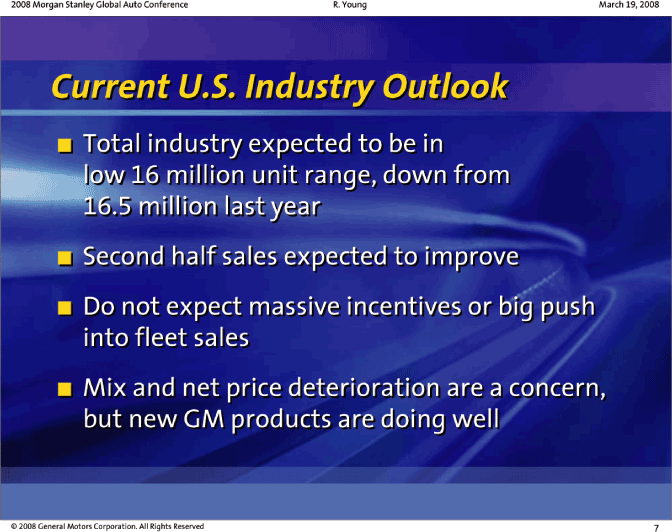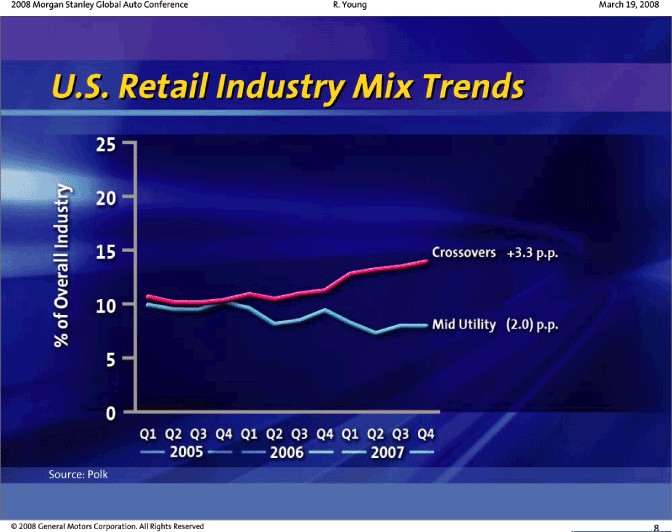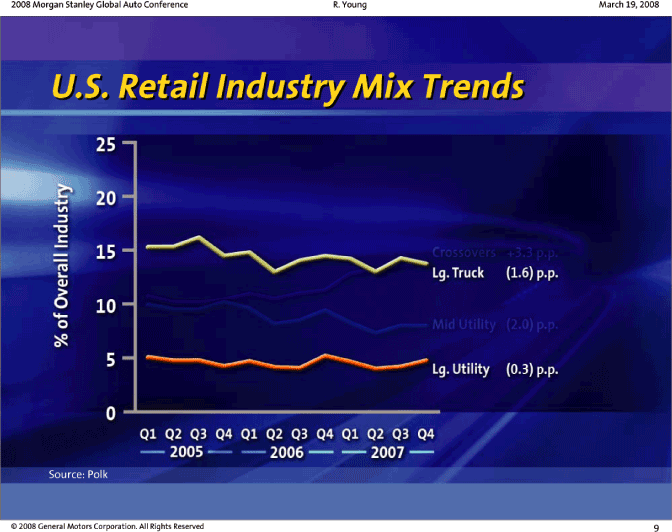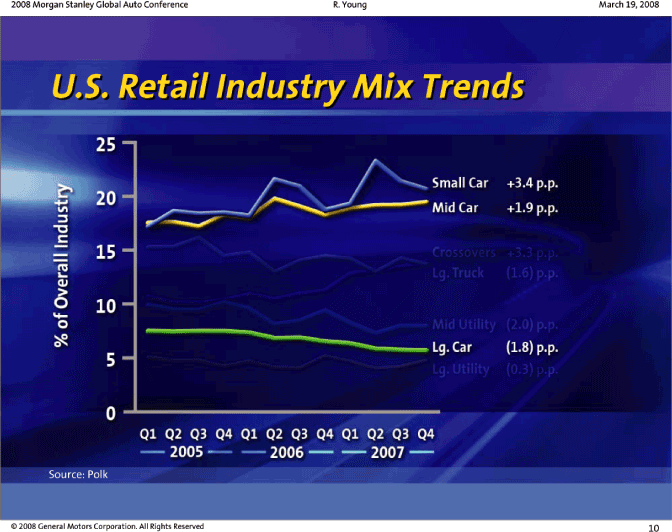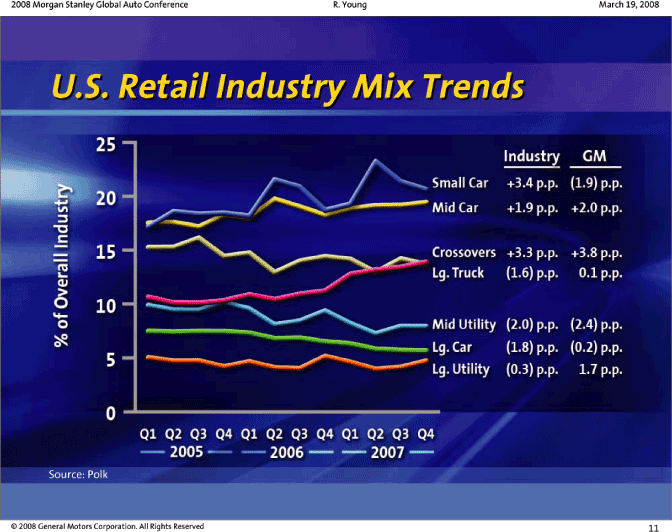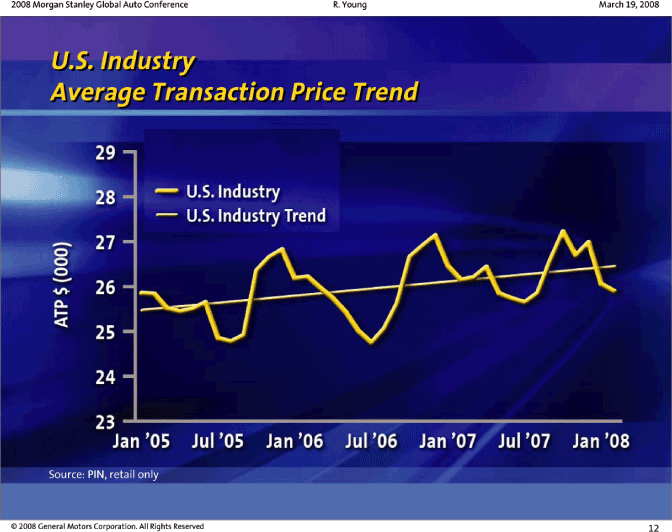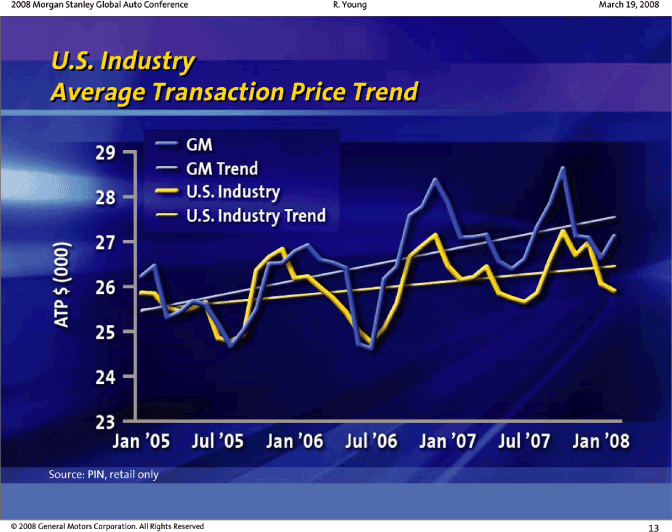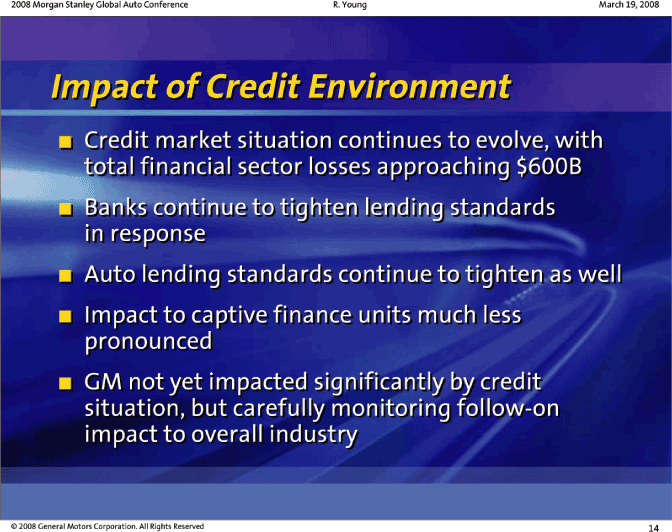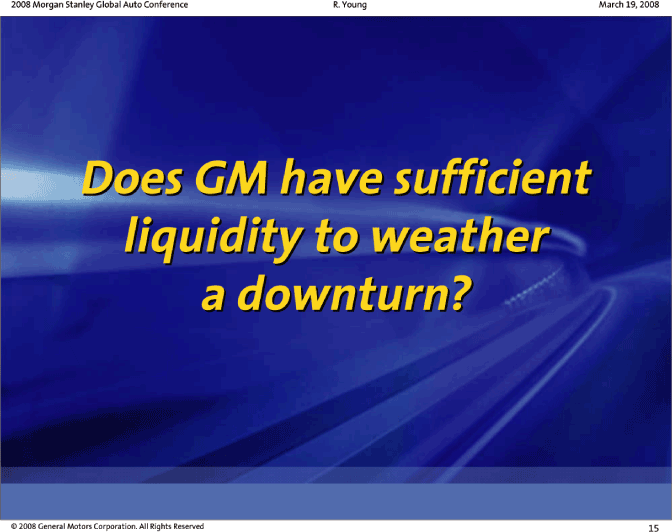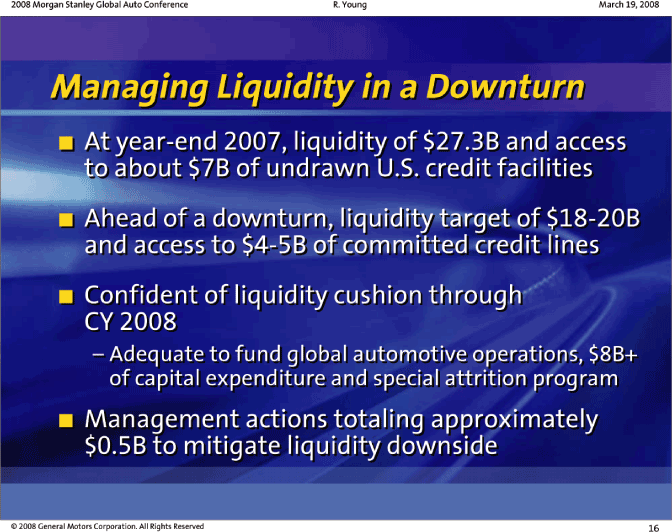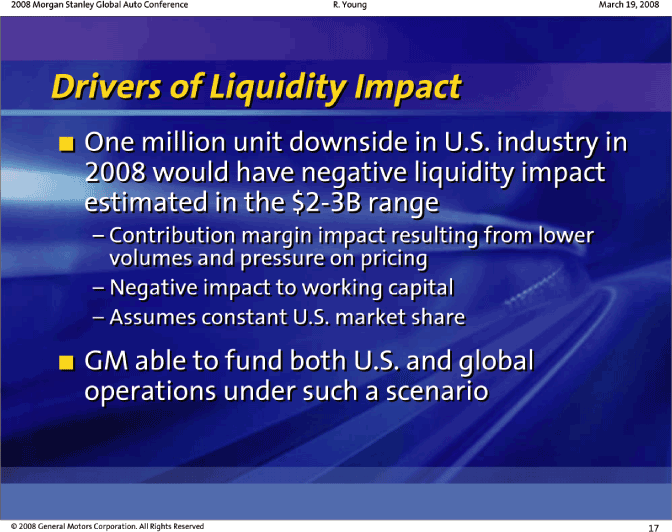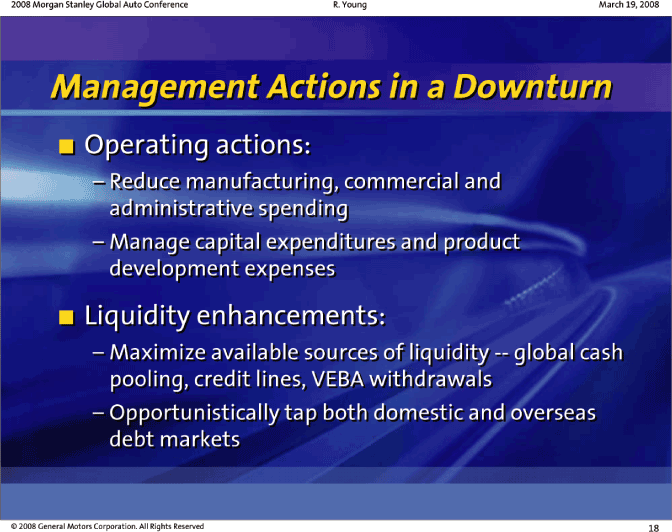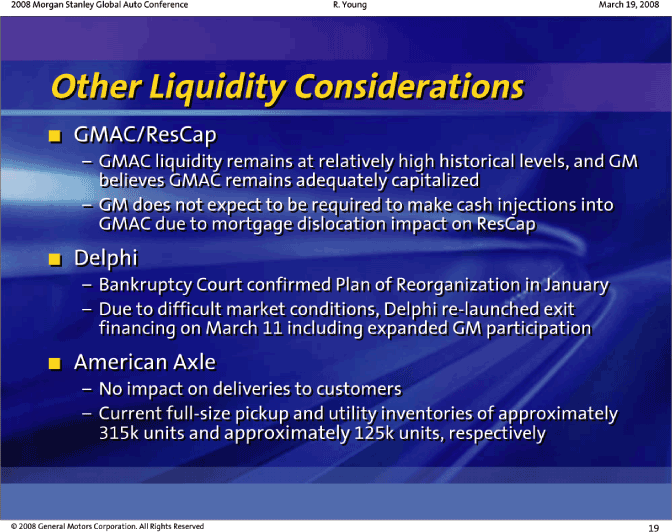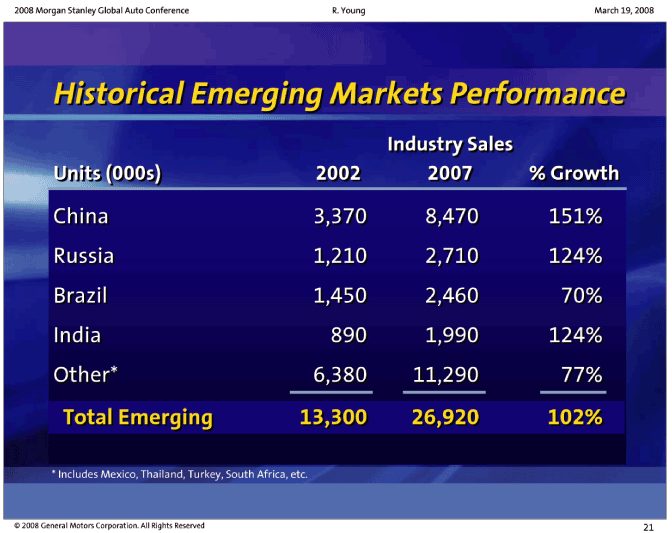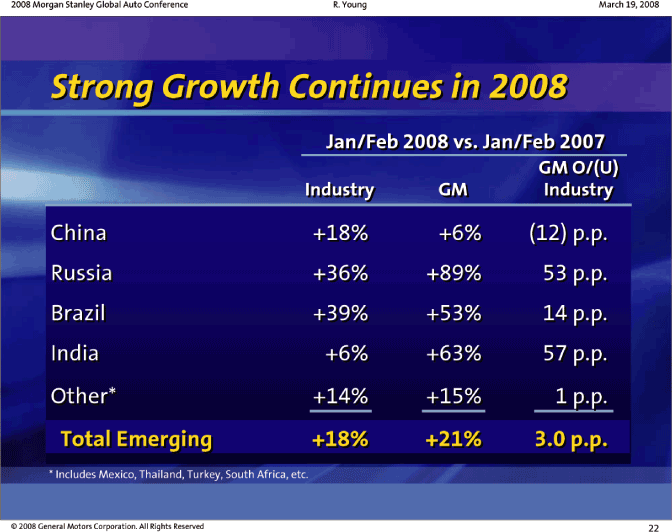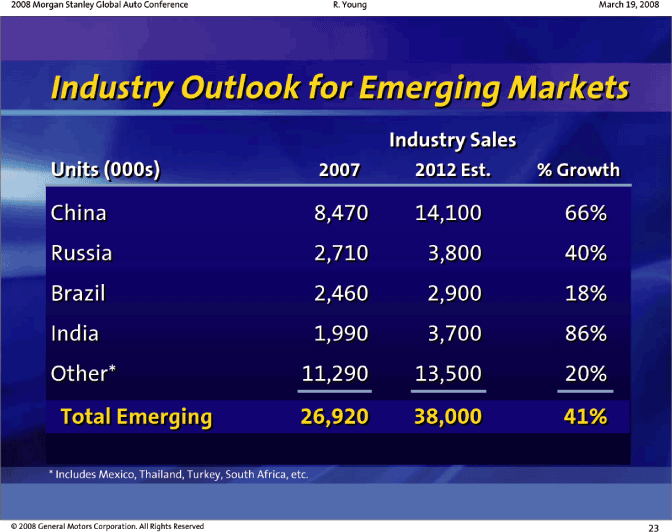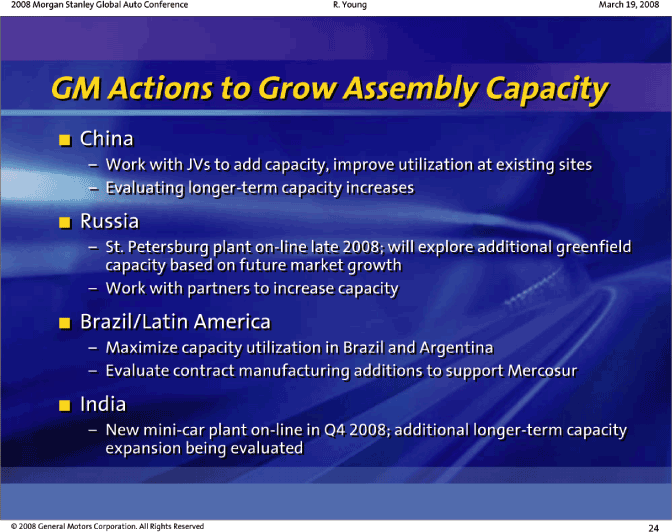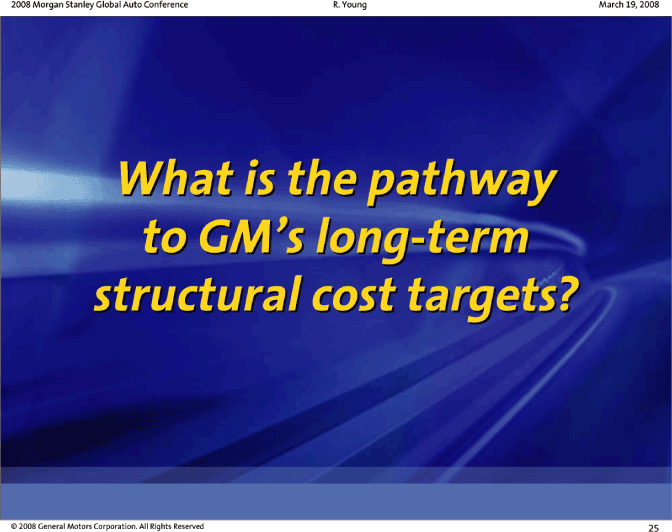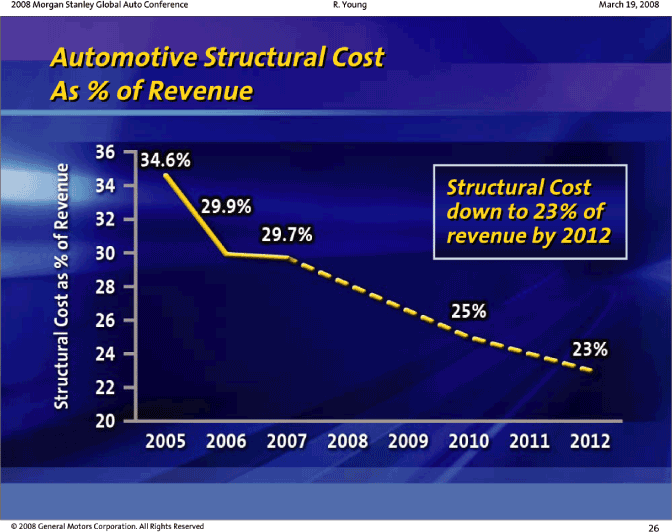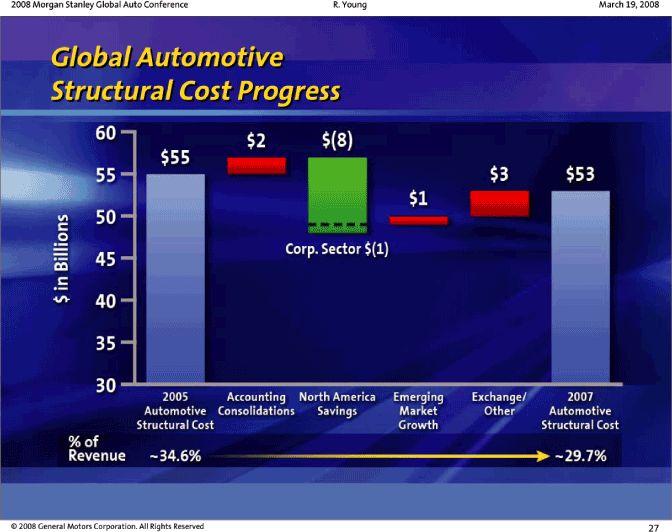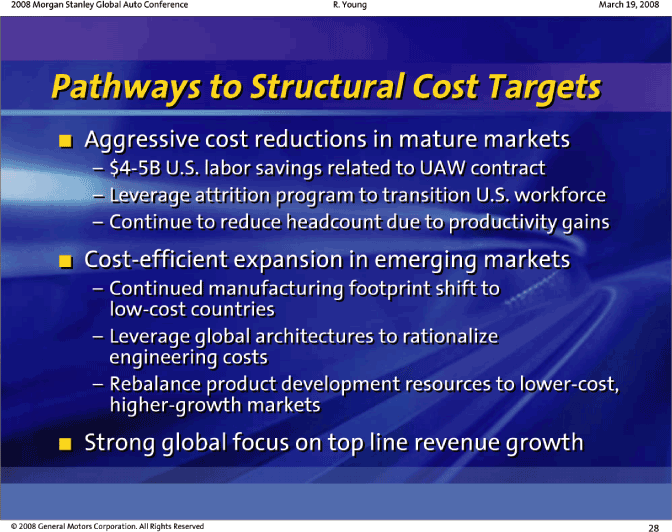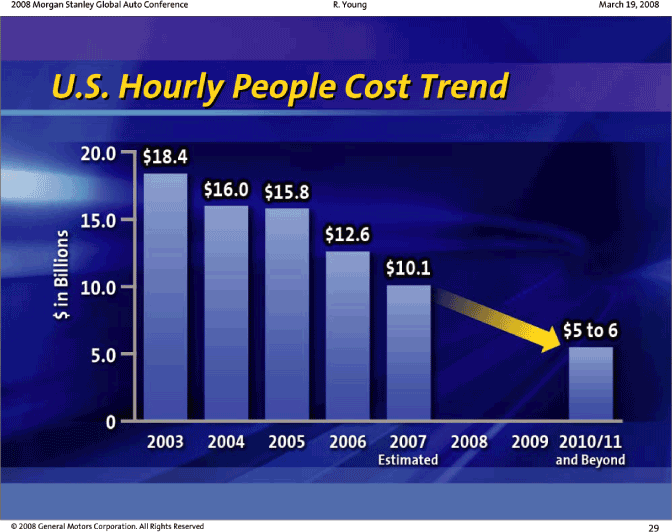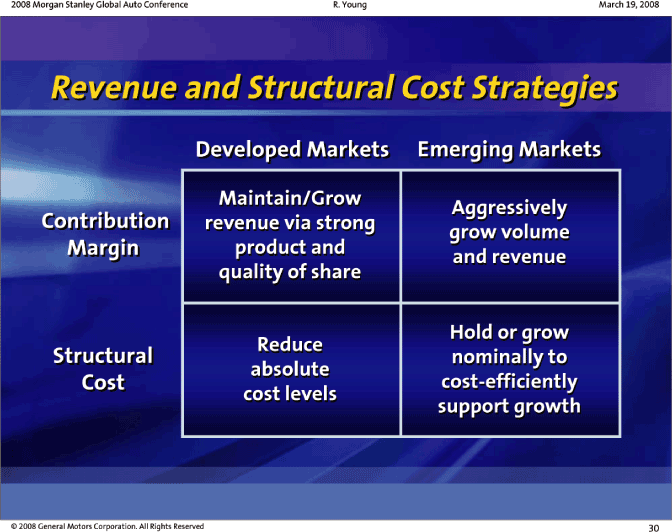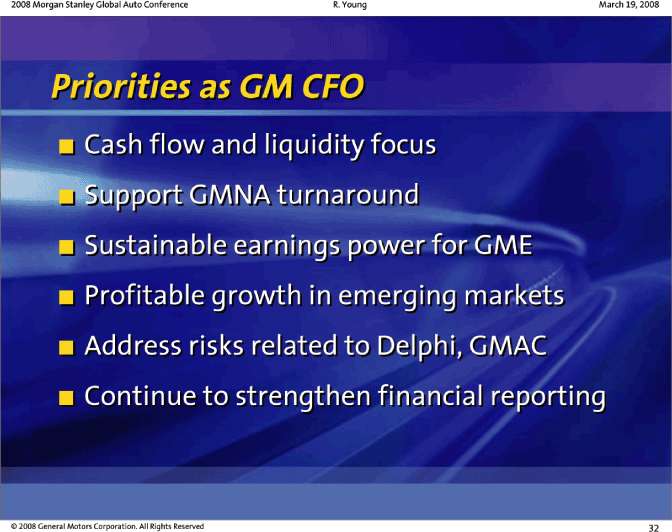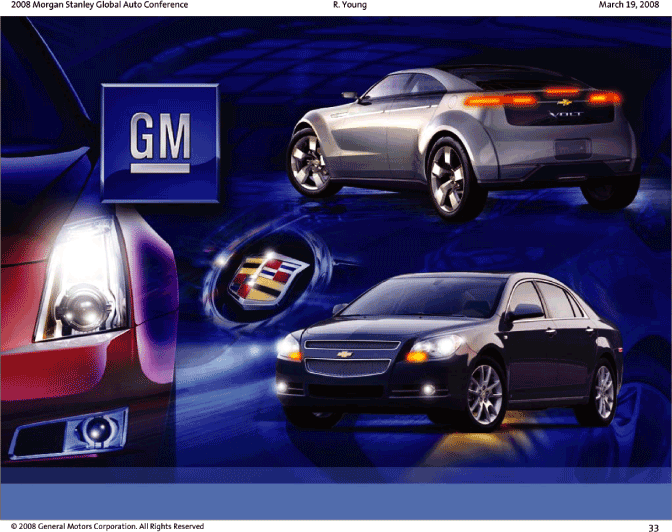| In this presentation and in related comments by General Motors’ management, we will use words like “expect,” “anticipate,” “estimate,” “forecast,” “initiative,” “objective,” “plan,” “goal,” “project,” “outlook,” “priorities,” “target,” “intend,” “evaluate,” “pursue,” “seek,” “may,” “would,” “could,” “should,” “believe,” “potential,” “continue,” “designed,” “impact,” or the negative of any of those words or similar expressions to identify forward-looking statements that represent our current judgment about possible future events. We believe these judgments are reasonable, but GM’s actual results may differ materially due to a variety of important factors. Among other items, such factors include: the ability of GM to realize production efficiencies, to achieve reductions in costs as a result of the turnaround restructuring and health care cost reductions and to implement capital expenditures at levels and times planned by management; the pace of product introductions; market acceptance of our new products; significant changes in the competitive environment and the effect of competition in our markets, including on our pricing policies; our ability to maintain adequate liquidity and financing sources and an appropriate level of debt; changes in the existing, or the adoption of new laws, regulations, policies, or other activities of governments, agencies, and similar organizations where such actions may affect the production, licensing, distribution, or sale of our products, the cost thereof or applicable tax rates; costs and risks associated with litigation; the final results of investigations and inquiries by the SEC and other governmental agencies; changes in accounting principles, or their application or interpretation, and our ability to make estimates and the assumptions underlying the estimates, including the range of estimates for the Delphi pension benefit guarantees, which could result in an impact on earnings; negotiations and bankruptcy court actions with respect to Delphi’s obligations to GM, negotiations with respect to GM’s obligations under the pension benefit guarantees to Delphi employees, and GM’s ability to recover any indemnity claims against Delphi; labor strikes or work stoppages at GM or its key suppliers such as Delphi or financial difficulties at GM’s key suppliers such as Delphi; completion of the final settlement with the UAW and UAW retirees, including securing class certification in a form acceptable to GM, the UAW and class counsel; completion of the final settlement with the UAW and UAW retirees, including obtaining court approval in a form acceptable to GM, the UAW, and class counsel; treatment of the terms of the 2006 Settlement Agreement pursuant to the Retiree MOU in a manner acceptable to GM, the UAW and class counsel; GM’s completion of discussions with the Staff of the SEC regarding accounting treatment with respect to the New VEBA and the post-retirement medical benefits for the covered group as set forth in the Retiree MOU, on a basis reasonably satisfactory to GM; shortages of and price increases for fuel; factors affecting GMAC’s results of operations and financial conditions and changes in the residential mortgage market, especially in the nonprime sector; significant changes in the competitive environment and the effect of competition in GMAC’s markets, including on GMAC’s pricing policies; GMAC’s ability to maintain adequate financing sources; GMAC’s ability to maintain an appropriate level of debt; restrictions on the ability of GMAC’s residential mortgage subsidiary to pay dividends and prepay subordinated debt obligations to GMAC; changes in the residual value of off-lease vehicles; changes in U.S. government-sponsored mortgage programs or disruptions in the markets in which GMAC’s mortgage subsidiaries operate; changes in GMAC’s contractual servicing rights; changes in the credit ratings of GMAC or GM; and changes in economic conditions, commodity prices, currency exc hange rates, or political stability in the markets in which we or GMAC operate. |
